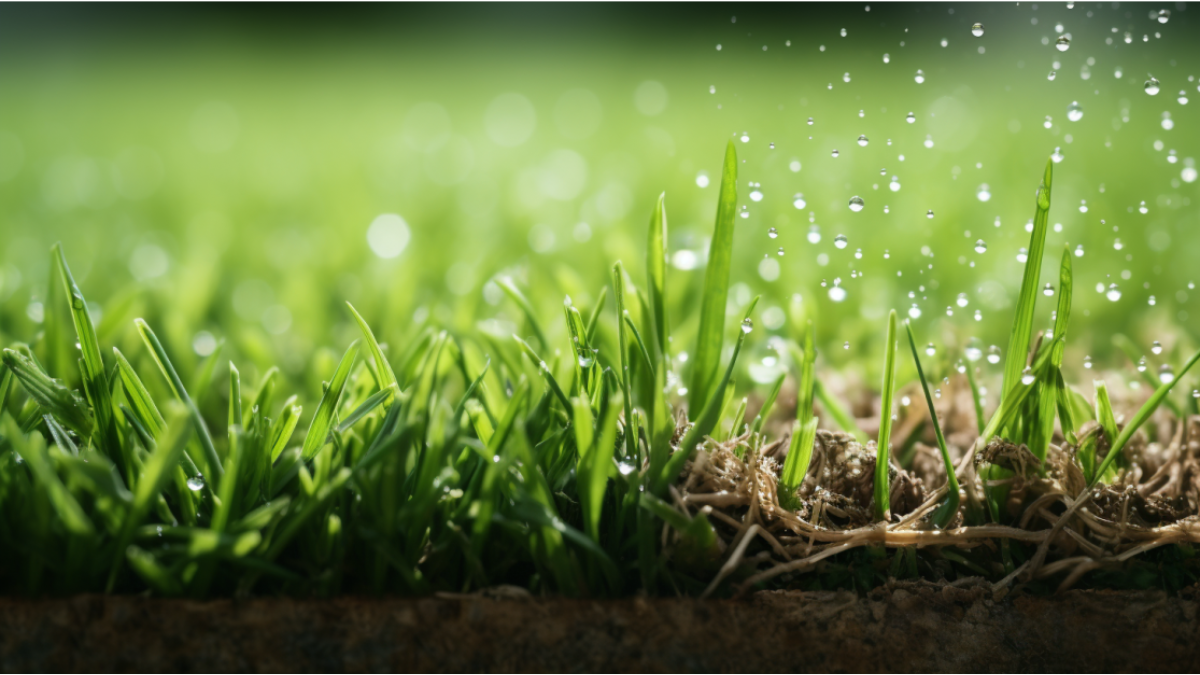Are you considering installing a new water softener system in your home? If so, you should be aware of its potential impact on your sprinkler system. Depending on where the water softener is installed, the sprinkler water may be softened, harming your plant life.
Understanding the relationship between softened water and sprinklers and how to protect your garden from any adverse effects is important. In this article, we will explore the potential problems that can arise when using softened water in your sprinkler system and provide tips on preventing damage to your plants.
We will also discuss workarounds for this issue, such as using rainwater or redirecting piping. By the end of this article, you’ll better understand the impact of softened water on your sprinkler system and how to ensure your garden stays healthy and vibrant.
Key Takeaways
- Softened water can harm plant life, especially if it contains high chloride levels from passing through salt.
- Sprinkler water can be affected by a water softener system, depending on where it is installed in the piping.
- Rainwater is a free and plant-safe alternative to softened water for watering lawns and gardens.
- Most modern water softener systems have a bypass valve to temporarily exclude salt from the water flow, which can help prevent harm to plant life.
Sprinkler System Connection
If you’ve recently installed a water softener system in your home, check if it’s connected to your sprinkler system to determine if your water is softened. The installation requirements of the water softener system can affect the sprinkler system.
The sprinkler water will be softened if the water softener is installed upstream of the outside piping. However, if your home has older piping that doesn’t have separate inside and outside water lines, you may need to add new piping to bypass water softening if necessary.
Piping considerations are important when installing a new water softener system. Tracing the piping can determine if the output of your sprinkler water is soft or not. It’s also important to note that softened water can harm plant life, depending on the type of water softener unit.
Softened water that passes through salt contains higher chloride levels, which can harm delicate grasses, flowers, and other plant life. Therefore, it’s essential to understand the installation requirements of your water softener system to ensure that your sprinkler water isn’t affected.
Effects on Plant Life
Be mindful of the type of water your sprinklers are using, as it can potentially harm the health and growth of your plants. If your sprinklers are connected to a water softener system, the softened water may contain high levels of sodium or chloride that can dehydrate grass and harm the long-term health of your garden. This is especially true if the water softener unit uses salt to soften the water.
To minimize the impact on gardening, consider using environmental alternatives such as rainwater. A rain barrel can collect naturally distilled, plant-safe water for later use, and it’s free! If redirecting piping or adding a bypass valve to exclude salt from water flow is not an option, rainwater is a great alternative to avoid harming your plants.
Remember, softened water may not harm your yard if it is free of sodium, doesn’t pass through salt, or doesn’t contain calcium and magnesium deposits. However, if you’re unsure about the quality of your water, it’s always best to err on the side of caution and consider using environmental alternatives.
Workarounds and Solutions
Consider using a rain barrel to collect naturally distilled water for your garden. It’s a cost-effective and environmentally-friendly alternative to using a water softener system. Rainwater is free and can save you money on expensive plumbing work that may be needed to redirect piping or bypass your water softener system.
A rain barrel can collect water from your roof that would otherwise go to waste. It’s a great way to ensure your plants get the water they need without the added sodium or chloride that can harm their growth.
If you do decide to use softened water for your lawn or garden, it’s important to check your water softener unit for a bypass valve. This valve will allow you to temporarily exclude sodium from the water flow, ensuring that your plants only receive safe water. However, remember that softened water can still contain calcium and magnesium deposits that may harm your plants if used over a prolonged period.
Ultimately, the best solution for your garden may depend on your situation. But considering rainwater collection or using a bypass valve are two options.
Conclusion
Now that you know the potential impact of softened water on your sprinkler system, protecting your garden is important.
Start by checking your water softener system’s location and connection to your sprinklers. If the water is being softened before it reaches your sprinklers, consider redirecting the piping to bypass the water softener.
If redirecting piping isn’t an option, try using rainwater for your garden instead. You can collect rainwater in a barrel or other container for your plants. This can also be a more environmentally friendly option, as it reduces your reliance on treated water.
By taking these steps, you can ensure that your garden stays healthy and vibrant, even if you have a water softener system installed in your home.
